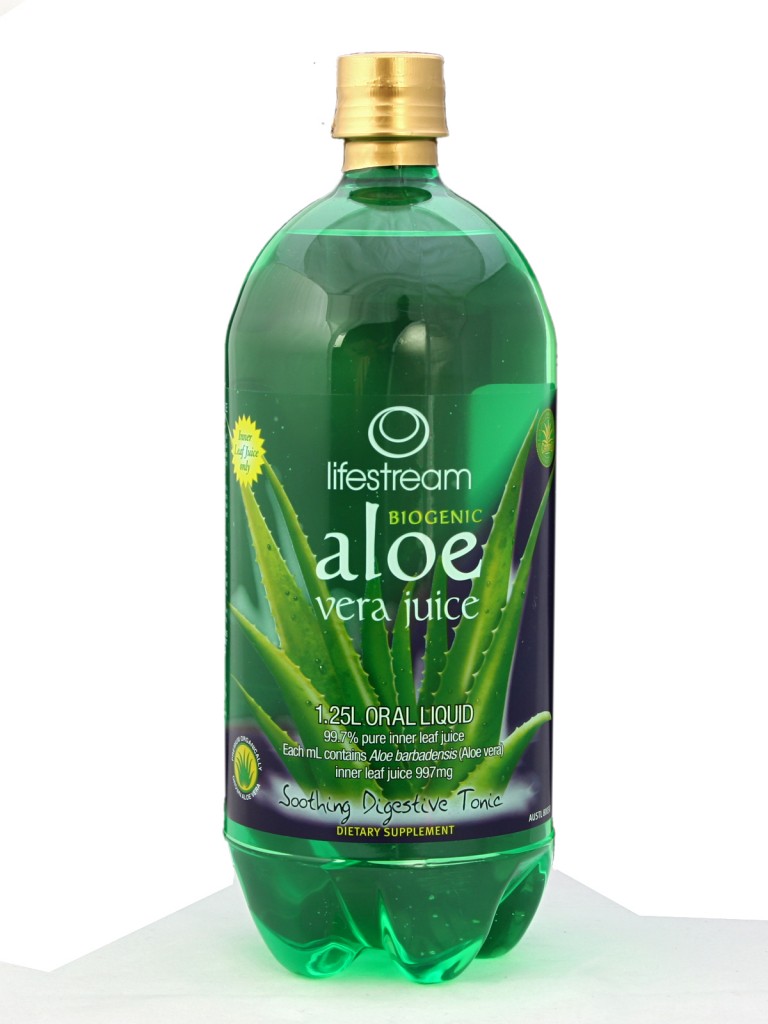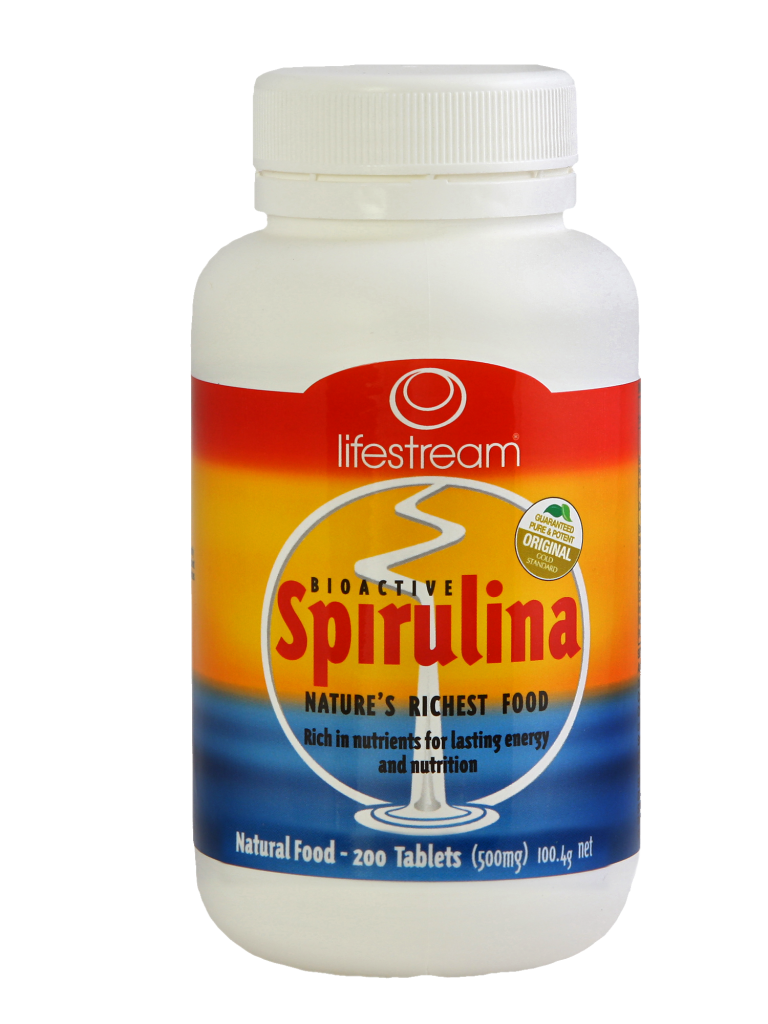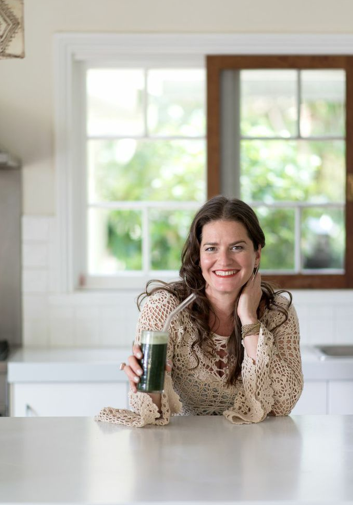280 Australians develop diabetes every single day*. Even more are thought to live with symptoms, yet remain undiagnosed. It’s estimated 3.2 million Australians live with symptoms of Type I and II Diabetes.
While the statistics are alarming, there is hope: researchers agree that 58 per cent of Type II diabetes sufferers may be able to prevent the disease and even reverse it.
So, you’ve been diagnosed now what?
Naturopath, nutritionist and Lifestream superfoods ambassador, Janella Purcell shares her top lifestyle advice for those facing a Diabetes II diagnosis:
• Eat a mostly wholefood diet that contains beautiful oils like avocado, olive and coconut oil, tahini, coconut, chia and flax seeds, as well as complex carbohydrates like nuts and seeds, fruit and veg, legumes and whole grains.
• Protein is essential to control sugar levels. Start your day with an egg, organic tempeh or tofu, lovely homemade baked beans, almonds, oats, quinoa, millet or amaranth. Add protein-rich Lifestream spirulina to your green smoothie or morning juice.
• It’s okay to include complex sugars: those still close to their original state, not highly refined or processed. Things like coconut palm sugar and nectar, rapadura, organic dried fruit, rice syrup, raw honey and dark agave.
Instead of overcomplicating your diet, simplify it. Janella says:
- Add superfoods such as spirulina and/or aloe vera to your daily diet. Research** has found both positively affect blood sugar levels and may prevent and help manage diabetes. For purity and potency, I recommend Lifestream spirulina and aloe vera.
- Eat mostly plant-based protein at every meal.
- Eat good quality sweeteners.
- Eat mindfully. Chew lots.
- Exercise moderately and regularly.
- Always eat breakfast.
- Avoid artificial sweeteners.
- Avoid refined and processed white flour, sugar and its products.
- Get enough sleep. Feeling tired will make you crave sugar and refined grains.
- Alcohol is high in sugar so this needs to be moderated. A glass at night with a couple of alcohol free nights is recommended. Red wine is better for you than beer. Be sure to use mixes without sugar in your spirits. Pre mixed drinks are a definite no-no, as they are full of chemicals and sugars.
“Try not to see these changes as a punishment, but an empowering step towards fuelling your body correctly,” Janella says. “Not only will your risk of getting diabetes dramatically decrease but your health will improve so much that your chances of enjoying wellness at every level of your being will increase also. Decide not to be a preventable statistic. It’s easy, affordable, fun and yummy to be well.
*Diabetes Australia
ENDS
_____________________________________________________________________
Media Contact:
Shannon Dunn
Communeco
shannon@communeco.com
(03) 9028 2229
**The Role of Spirulina and Aloe Vera in Diabetes Management
ANTI-DIABETIC PROPERTIES OF ALOE VERA:
Three systemic reviews of herbal medicines for glycaemic control in diabetes found that A. vera can lower blood glucose levels in diabetic patients (Grover et al 2002, Vogler & Ernst 1999, Yeh et al 2003). In one trial aloe juice consisting of 80% gel or placebo was given in a trial of 40 patients who were recently diagnosed with type 1 diabetes at the dose of 1 tablespoon twice daily. From day 14 the blood sugar levels in the aloe group began tofall significantly compared with the control group and continued to steadily drop during the study period (P < 0.01). Blood triglyceride levels were also substantially reduced but cholesterol levels remained the same (Yongchaiyudha et al 1996). A single-blind, placebo controlled trial found that glibenclamide when combined with oral aloe gel was more effective in reducing blood sugar levels than glibenclamide alone in 72 patients with type 2 diabetes. Patients took 5 mg of glibenclamide twice daily and 1 tablespoon aloe gel. Fasting blood glucose levels dropped appreciably after just 2 weeks of treatment, and were still falling after 42 days (Bunyapraphatsara et al 1996).
ANTI-DIABETIC PROPERTIES OF SPIRULINA:
Role of Spirulina in the Control of Glycemia and Lipidemia in Type 2 Diabetes Mellitus.
Spirulina, with its high concentration of functional nutrients, is emerging as an important therapeutic food. This study (Parikh P1, Mani U, Iyer U.) aimed to evaluate the hypoglycemic and hypolipidemic role of Spirulina. Twenty-five subjects with type 2 diabetes mellitus were randomly assigned to receive Spirulina (study group) or to form the control group. At baseline, the control and study groups were matched for various variables. The efficacy of Spirulina supplementation (2 g/day for 2 months) was determined using the preintervention and postintervention blood glucose levels, glycosylated hemoglobin (HbA(1c)) levels, and lipid profiles of the diabetic subjects. Two-month supplementation with Spirulina resulted in an appreciable lowering of fasting blood glucose and postprandial blood glucose levels. A significant reduction in the HbA(1c) level was also observed, indicating improved long-term glucose regulation. With regard to lipids, triglyceride levels were significantly lowered. Total cholesterol (TC) and its fraction, low-density lipoprotein cholesterol (LDL-C), exhibited a fall coupled with a marginal increase in the level of high-density lipoprotein cholesterol (HDL-C). As a result, a significant reduction in the atherogenic indices, TC:HDL-C and LDL-C: HDL-C, was observed. The level of apolipoprotein B registered a significant fall together with a significant increment in the level of apolipoprotein A1. Therefore, a significant and favorable increase in the ratio of A1:B was also noted. These findings suggest the beneficial effect of Spirulina supplementation in controlling blood glucose levels and in improving the lipid profile of subjects with type 2 diabetes mellitus.
Find out more: http://www.ncbi.nlm.nih.gov/pubmed/12639401
ABOUT LIFESTREAM
Before spirulina and aloe vera were household names, Lifestream produced these two highest quality, best-selling natural vegan supplements—and as a result, cemented its reputation as market leaders and innovators in these two categories.
Since then, Lifestream’s entire product range has followed suit, with the highest quality ingredients chosen to foster health and wellbeing. Lifestream has always produced clean, green and 100% natural, vegetarian and vegan-friendly products. Their uncompromising commitment to such excellence has resulted in a high level of loyalty with our customers. For 30 years, Lifestream, which is distributed in Australia by Planet Health, has embodied purity, consistency, quality and integrity.
Lifestream’s extensive range encompasses ultimate nutrition, energy, antioxidants, bowel and digestive health, immunity, joint and bone health, and omegas. Products include: Chlorella, Barley Grass, Wheat Grass, Natural Calcium, Ultimate Greens, V-Omega 3 and others. See entire product range here.
ABOUT JANELLA
A sought-after naturopath, nutritionist, medical herbalist, iridologist and chef, Purcell has been a regular on Australian television with appearances on Masterchef, and as the Уgood chefФ on Good Chef, Bad Chef. She is also a regular contributor, columnist for many of Australia’s best-loved magazines including Nourish, Woman’s Day and Good Medicine magazines.
As an author, Janella has three best-selling books, including Eating for the Seasons, which won the “best health and nutrition” category at the International Gourmand Awards. Janella’s Wholefood Kitchen was also shortlisted for the prestigious award. She will release her fourth book this year.
Janella has combined her vast knowledge of food and nutrition to create a multi-disciplined approach to health and wellbeing. Dedicated to a core philosophy of food as medicine, Janella teaches how to get the most out of our meals – and how to avoid the pitfalls. She has been working with wholefoods since childhood and honing special diets for the past 15 years.
Besides her wholefood workshops, media appearances and online work, Janella can be found consulting with clients at her Natural Food and Medicine Store in Sydney’s Surry Hills, as well as from her clinic in Bangalow, Northern New South Wales.




